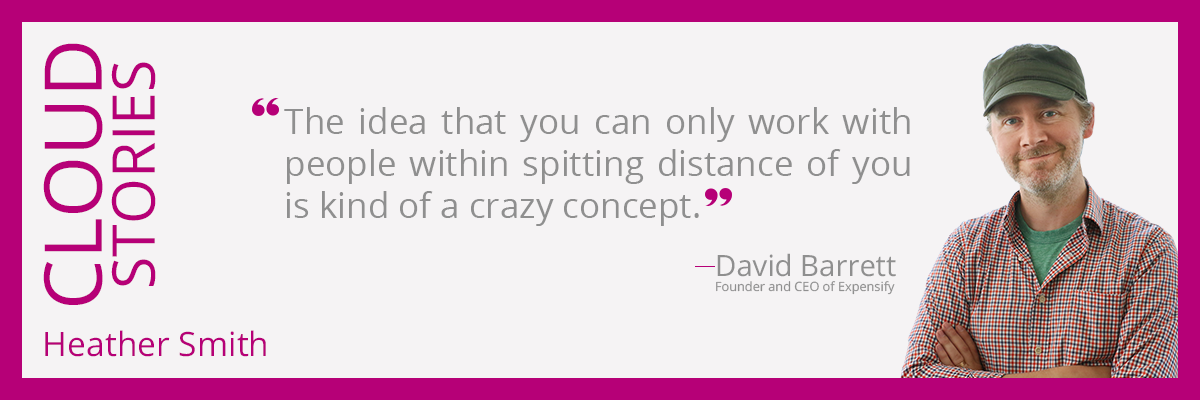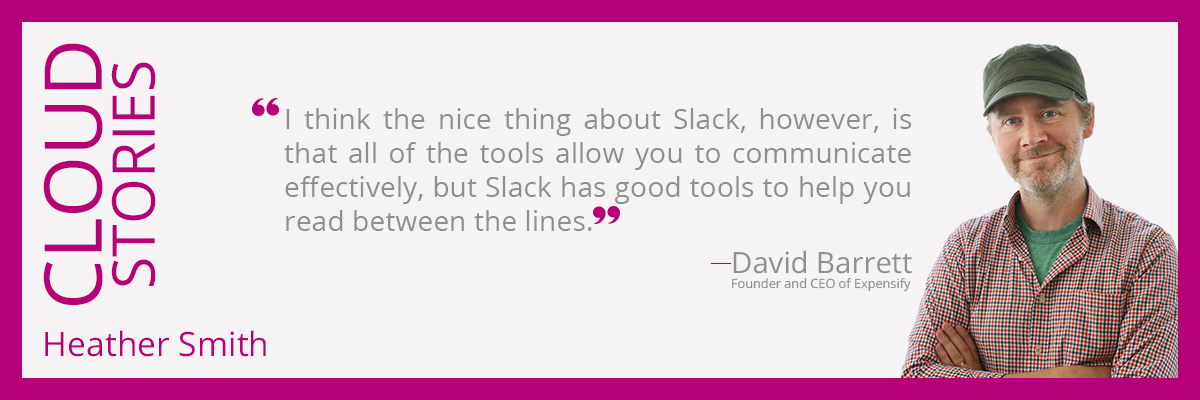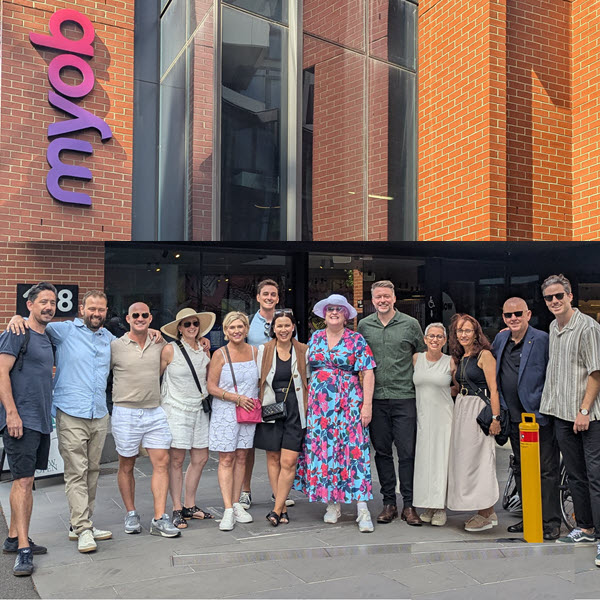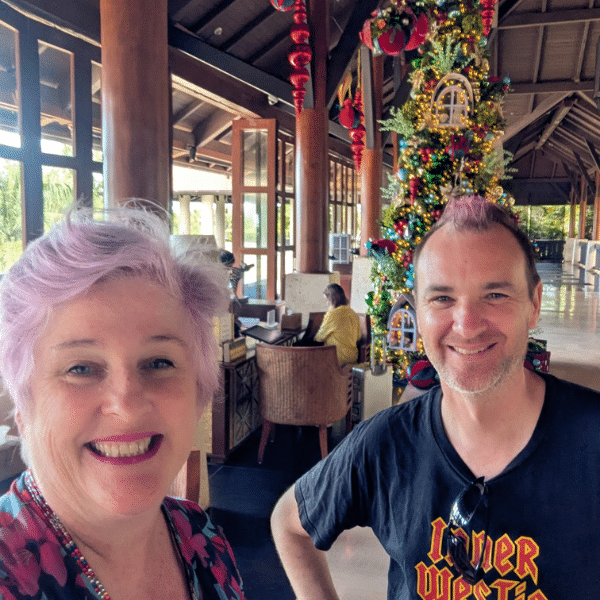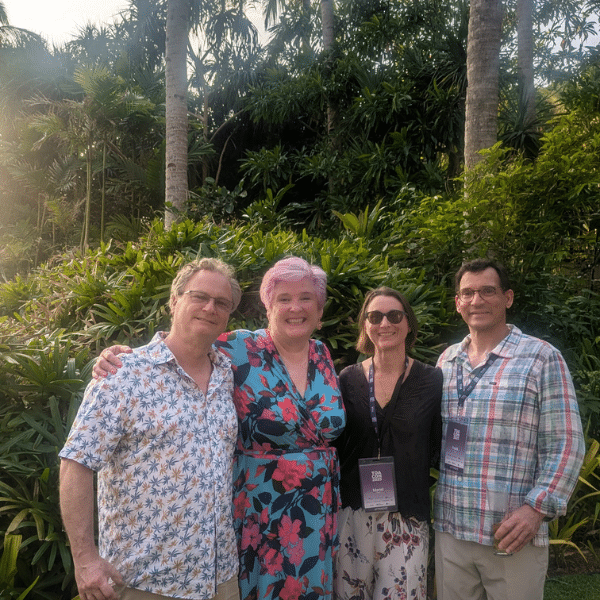Today I am speaking with David Barrett, the founder and CEO of Expensify. He’s an all around alpha geek who started programming when he was 6. He worked in a Virtual Reality Lab at the University of Michigan, wrote 3D graphics engines for the video games industry in Texas, and helped build a peer-to-peer file transfer technology called Red Swoosh in California, before founding Expensify.
Expensify has pioneered innovation in the receipt and expense management process by automating every step from receipt scanning through reimbursement. From solo-preneurs to global enterprises across all industries, Expensify serves over five million people and 50,000 customers around the world.
Overview
- Starting Expensify off the back of a thwarted attempt to help homeless people
- An overview of what Expensify does
- The coding language Expensify is built on.
- The biggest challenges faced when starting Expensify is David had no idea what he was doing. He asked lots of questions and listened.
- Working with a remote team – you can’t get the best people to work for you if they’re not getting rich and having fun!
- Communication tools used to stay connected with remote staff, hint SLACK is one of them!
- Cloud apps, cryptocurrency and one straight answer.
- Talking shiraz with David Barrett – wine aficionado
- What does the future hold for Expensify?
- Future plans for Expensify: We know we’re going to be here forever, so we’re making the investments in the product that’s going to last forever.
Heather Smith: Hi, it’s Heather Smith here. Welcome to Cloud Stories. Today, I’m speaking with David Barrett, the founder and CEO of Expensify. David is a wine aficionado and an all around alpha geek. David started programming when he was six and it has been his primary activity ever since, with a brief hiatus for world travel, technical writing, project management. Now he’s running Expensify. I started by asking David who his favourite comedians were.
David Barrett: Wow, I don’t think I’ve ever been asked that question before. I guess I would say, my wife and I love Amy Schumer. She thinks … she’s the best. But recently we just binge watched all of Key and Peele. Key and Peele are hilarious, oh my gosh. I would say if I were going to pick three, those would be the three.
Heather Smith: Okay. Key and Peele is two different people?
David Barrett: Yeah.
Heather Smith: Key and Peele, okay.
David Barrett: Key and Peele is a Comedy Central show and they just have a whole bunch of sketch comedy. It’s just completely absurd, but all incredibly creative. I think, in both cases, they have … Certainly very different comedians, whether Amy Schumer versus Key and Peele. They all have this really high production value. There’s always something clever there that you don’t expect.
Heather Smith: Yeah, excellent. Thank you for sharing that. I like Amy Schumer. I watched that movie with Goldie Hawn on a plane. It’s also dangerous watching a funny movie …
David Barrett: Yeah, yeah. Trainwreck or something.
Heather Smith: Yeah.
David Barrett: It was great.
Heather Smith: No, no, no. It’s not Planewreck. They’re in some …
David Barrett: They’re in Colombia or something like that.
Heather Smith: Colombia, yeah. I was on a plane watching it. It’s always dangerous watching a funny movie on a plane.
David Barrett: Of course. Note: It was Snatched.
Heather Smith: Because you laugh too much.
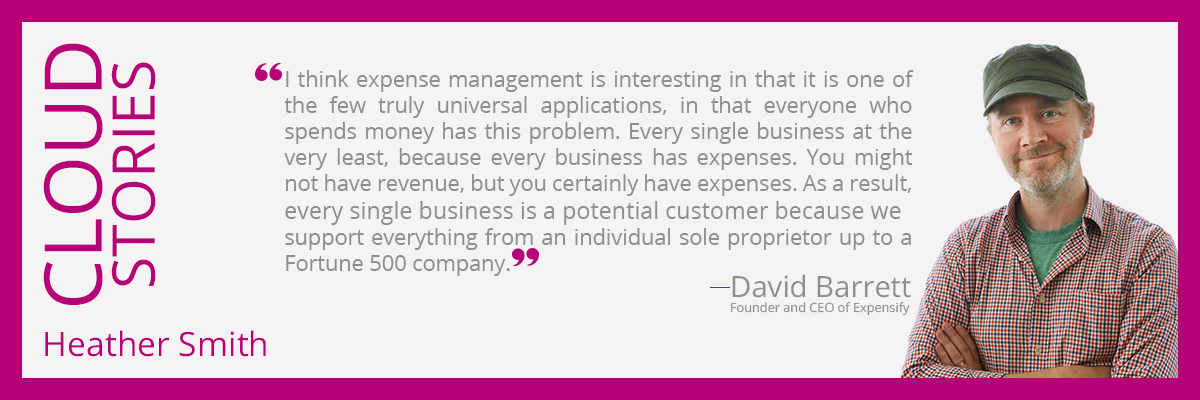
Starting Expensify off the back of a thwarted attempt to help homeless people
David you founded Expensify in 2008, off the back of a project to help homeless people. Can you briefly share that story with our audience?
David Barrett: Sure. Yeah, certainly an unusual way to start a business. My background is I’ve been a computer programmer since I was six, a computer graphics and video games, worked in the Virtual Reality Lab at the University of Michigan, game engine design in Texas for a while, and then peer-to-peer content distribution, voiceover IP’s, all these really difficult technologies.
David Barrett: When my last company got acquired, I lived in downtown San Francisco in this neighbourhood called the Tenderloin. I wasn’t crazy rich, but I had more money than I’d had before. I was walking around these neighbourhoods and seeing the same homeless people everyday. You really get to know them. I don’t feel super comfortable giving cash to the homeless. There’s a lot of opinions on it. That just happens to be mine. I wanted to help in some way. I’d sometimes bring them into McDonald’s or whatever is there. Honestly, it’s a very awkward experience for everyone involved. I’m like, “Well, should I get gift certificates or something,” because I wanted to do something that I felt confident the money wasn’t going to go to drugs or anything I just didn’t want to support.
David Barrett: I’m like, “Well, gift certificates can get lost and they’re kind of awkward.” I’m like, “Well, what if I made a debit card, a prepaid debit card, that could only be used at restaurants that didn’t serve alcohol,” like a Subway and things like this. I’m like, “Oh, I could kind of do that,” but I’m like, “People are going to use them. It’s a lot of money to carry around.” I’m like, “What if I made a prepaid debit card that had no money on it? That was only loaded on demand when it was used at a restaurant that was authorised and only up to ten dollars per purchase. The purchase would basically be routed back to my personal credit card.” I’m like, “Oh, I could do that. That’d be kind of cool. I can give out these cards. I know they’re not being used to buy alcohol. I can see where they’re being used. If I needed to, then I could maybe block someone if they found something that I didn’t want to support or whatever it is.” I’m like, “Okay, I can do this.”
David Barrett: I went to the banks with this idea. They’re just like, “What? No. No, we’re not going to help you build this thing. What are you talking about? There’s no business model behind this. It’s just so you can give out money to homeless people. No, this is a terrible idea.”
David Barrett: I’m like, “All right.”
David Barrett: They’re like, “This is just too weird and too risky. It’s not going to happen.”
David Barrett: All right, I need it to sound low risk. I need it to sound boring. I’m like, “What is the most boring thing I can think of?” I’m like, “Ah ha! Expense reports.” That is literally how I got into it. I was going-
Heather Smith: Expense reports.
David Barrett: I’m talking to these banks and I’m like, “Okay, now forget all that. Now, what I’m going to do is I’m going to do an expense reporting service called Expensify, the corporate card for the masses, where business owners can give out these prepaid debit cards to their employees. They can specify which merchants the employees can go to. They can specify spending limits. The purchase would be routed back to the business owner’s credit card for them to get all the miles.” Same exact technology that I wanted to build, but presented in a way that it was just more palatable to the banks.
David Barrett: They’re like, “Yeah, that sounds safe and boring. I hate my expense reports, too.”
David Barrett: I’m like, “Great.” I was going through the process of trying to get all these different vendors in line to help me build this technology. As you can imagine, a prepaid debit card, there’s a lot of different components. Every time we’d get a question, I would just say yes.
David Barrett: They’re like, “So, this iPhone thing just launched. Are you going to have an iPhone app?” I’m like, “Definitely.”
David Barrett: It has a camera on it? Do you scan receipts? Absolutely.
David Barrett: What about Mint and credit cards? Do you import credit card fees? Of course, I do.
David Barrett: It’s like, talk about accounting packages, like this Xero thing in QuickBooks. I’m like, “I have no idea what any of those are, but yes, we totally support those, too.” Because actually I just didn’t care. I wasn’t really planning on building any of this. I just needed the card technology for me to do my own thing.
David Barrett: I launched this technology in 2008 in this conference called the Tech Crunch 50 and launched it on stage. Everyone is like, “Wow! These cards are interesting and creative and all that, but your expense reports are amazing.”
David Barrett: I’m like, “What?”
David Barrett: Yeah, if you could do all that, that would be great.
David Barrett: I’m like, “Sure, maybe someone will do all that, but it’s not going to be me. Because I’m making these cards for myself.”
David Barrett: The very next day after launch, MasterCard canceled all of our cards. We’re like, “Aw, man, now what are we going to do?” Because it was just something stupid, like a trademark symbol was in the wrong spot. When you’re dealing with the brands like MasterCard, they really care about that kind of stuff. Anyway, the day after launch we were shut down. We’re like, “Aw, crap, now what are we going to do?” We’re like, “Well, people seemed really interested with this expense reporting concept. Maybe we should just do that.” Ten years later, that’s what we’re doing. It’s great.
Heather Smith: Excellent. I really like that story, how you helped the homeless, but sort of found this idea from doing that project of helping the homeless. Have you ever circled back to find something that can help them?
David Barrett: I haven’t yet actually.
Heather Smith: No?
David Barrett: That’s always something that’s nagged at me. I actually hope to have some more to say about that soon.
Heather Smith: Yeah, sometimes life gets in the way of things like that. One of the really neat features about Expensify is that you can use it on your mobile device, even if you’re not connected to the internet. This is just something I recently discovered. For us here in Australia, that we have a lot of miners and farmers who actually have limited access to the internet, that is a really neat feature.
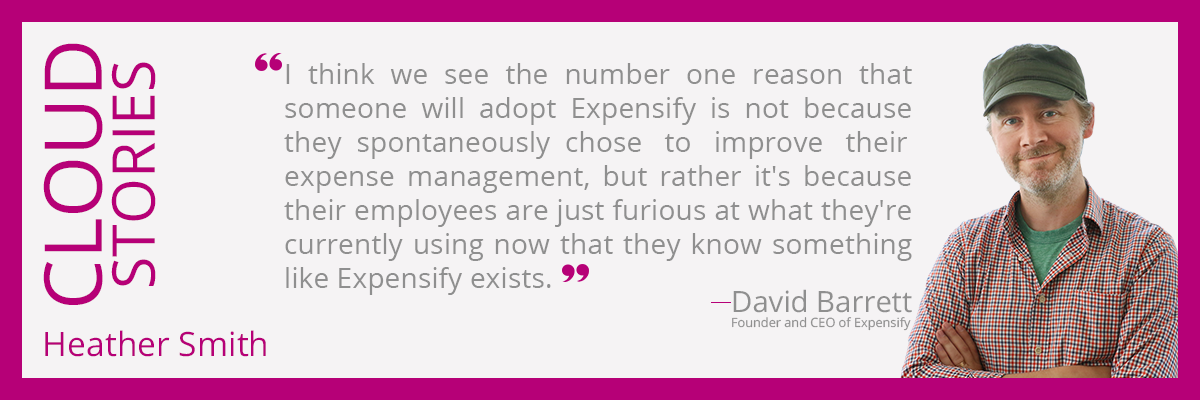
An overview of what Expensify does
Heather Smith: Can you just explain to our listeners what Expensify does sort of from end to end? I know you like to talk about how it’s automating the whole process?
David Barrett: Sure. At the core, it’s quite a simple product. That is, when you get a receipt, you take your phone out your pocket, you take a picture of the receipt, you put your phone back in the pocket, and you never think of that receipt again. Whatever that receipt needs to do, whatever its future is, is in our hands, not in yours. We will read all the information off the receipt automatically, so there’s no typing involved. Our accuracy is so high that you just don’t need to review it. It’s not like you have to sit there and wait until you get results and then click confirm or something. It’s like, no, we got it. If you can read it, we can read it.
David Barrett: We will do whatever makes sense for the environment. Are you just tracking expenses for yourself? Cool. We’re just going to file into a category, and you can analyse it later. Or do you want to submit it to someone else to get reimbursed? That’s great, too. That person can set up approval processes. If there are company cards involved, we will go ahead and separate the reimburseables from the non-reimburseables. We can do reimbursements basically through BAX files, through ACH in the United States. We can export to accounting systems like Xero, QuickBooks Online, QuickBooks Desktop, and Revel, and a million other tools out there, as well.
David Barrett: I would say, fundamentally, everything starts with the receipt capture. It starts with the mobile app where you take a picture of the receipt. We just take care of everything for you.
The coding language Expensify is built on.
Heather Smith: What language is Expensify built on?
David Barrett: A whole bunch of them.
Heather Smith: Okay.
David Barrett: The iOS app uses a combination of Objective C and Swift. The Android does Java. The website is a combination of things, but mostly we’ll just call it PHP. Our database layers are C++, some integration stuff in Java. We have probably a half dozen other languages smattered throughout the service, as well.
Heather Smith: If you started programming from six, does Expensify have some of your own coding within it?
David Barrett: Yeah. I wrote at least half of it from the very start.
Heather Smith: Cool. Very cool.
David Barrett: It was just me when I started it and then me and my co-founder. I was just me for my first year, and then my co-founder and I for the next year. There was four of us for the next two years. No, there’s a whole lot of my code in there.
The biggest challenges faced when starting Expensify is David had no idea what he was doing. He asked lots of questions and listened.
Heather Smith: Excellent. What were the biggest challenges and obstacles you faced when you first started Expensify?
David Barrett: I guess I would say maybe the biggest challenge is I had no idea what I was doing. I didn’t know anything about accounting. I literally didn’t plan on doing this. It’s not like I did any sort of research or studied or have degrees or anything like this. I think that is a real challenge, but at the same time I think we were only able to do this because we had no idea what we were doing. The most important thing we knew was that we didn’t know anything. As a result, we just talked to people and asked them, “You seem real excited about whatever it is that you think I’m about to do for you. Can you just break that down for me a bit? Maybe I can do that.”
David Barrett: We launched on stage this sort of vaporware, nonexistent product. People really loved this vision. People would write us and be like, “Oh my gosh, I checked this thing out. Well, it was terrible because it didn’t work at all, but it could be great.”
David Barrett: I’m like, “Okay, cool. Walk me through what it is that you think would be great. Maybe I can do that.” We just talked to 1,000 different people. They all basically say they want the same thing. It’s like, okay, I have a good sense of how to build. Maybe I’m not an accountant, but I can build receipt scanning. That’s cool.
David Barrett: Over time, as the team grew, and between talking to just more and more users and customers, I think that our knowledge of the space grew. I think what’s sort of interesting is that most people who come at the accounting industry come to it with a background in accounting. But a background in accounting and bookkeeping is primarily about a paper-based process. Most of the tools in the space are about how to digitise a paper process. Whereas we came at it with a complete clean slate environment where we’re saying, “No, no, no. We’re going to build an entirely digital process from day one.” The idea of having to view things in batches and shift them from left side of your desk to the right side of your desk and put them in envelopes and things, that didn’t really influence our thinking a whole lot. We viewed it very much from a technology perspective. Like, “Okay, let’s just start with a mobile app. Let’s start with the scanning of receipts. What should happen after that?”
David Barrett: It turns out that when you have a paper-based mentality, it creates this mountain of dread where essentially you accumulate enough stuff on your desk until you can’t handle it anymore. Maybe you need to get reimbursed or the stress is too high. Whatever it is. Eventually, you just buckle down and do it. You take this big pile of stuff and put it onto the next person’s desk. That person is like, “Okay, well, I’m just going to ignore it as long as I can,” and so forth. Everyone just hates the paper-based process because it’s a series of these batches and these piles of dread.
David Barrett: Whereas, if you take away the paper and sort of start it from clean slate and say, “Well, actually, no. When you get the receipt, you shouldn’t put it in your pocket. You should just take a picture of the receipt and throw that receipt out. Why do you want to stuff your pockets full of receipts? That’s no fun.” If you just stop doing it the bad way, then you just take a picture of the receipt and forget about it. Then you no longer have this mountain of dread piling up in the corner. It’s just everything is taken care for you behind the scenes.
Working with a remote team – you can’t get the best people to work for you if they’re not getting rich and having fun!
Heather Smith: What I really like from listening to you and the other YouTube videos I’ve watched of you is that you seem to have just written your own playbook on how to run a business and how to do things. You just took this and you go, “Okay, we’re just going to start paperless.” You didn’t look at what was happening. You just did it your own way. One of the other interesting things, aspects, that I’d like to talk to you about is staffing. I understand that many of your staff work remotely. If that is the case, how do you manage a team of remote staff? How do you keep them motivated and on task and following the same vision and mission of your business?
David Barrett: Man, it’s super hard. Yes, we have offices in San Francisco, in Portland, Oregon, in Michigan, in Melbourne, and in London, as well as just a host of people sort of smattered around the world.
David Barrett: I think we’re about 125, 120 people total. Yes. First, finding a group of awesome people is super hard. Keeping them motivated is also super hard. I think it’s the sort of thing you can’t just pick and choose just one technique. You have to build a whole new view in how to build a team. What I mean by that is to say you can’t get the best people to work for you if they’re not getting rich and having fun. I would say, because everyone who works at Expensify could go work anywhere. They could walk across the street and just get jobs anywhere, but they choose to work here because we’ve created an environment that, yes, I would say it’s super financially rewarding to work with Expensify, but more importantly it enables you to live a very rich life. We put a lot of effort into good work life balance and encouraging people to take vacations and providing just support for your family while traveling.
David Barrett: For example, when we do business trips, we encourage people to take their significant others. We have everyone in the world comes back, all meets in one spot, basically at least twice a year. Every year, we take the whole company overseas for a month, including families. We also bring everyone together for a holiday party or something like that every year.
David Barrett: Enabling people to live a very rich life, which is just not financially rewarding, but is just very emotionally rewarding, is sort of the key to it.
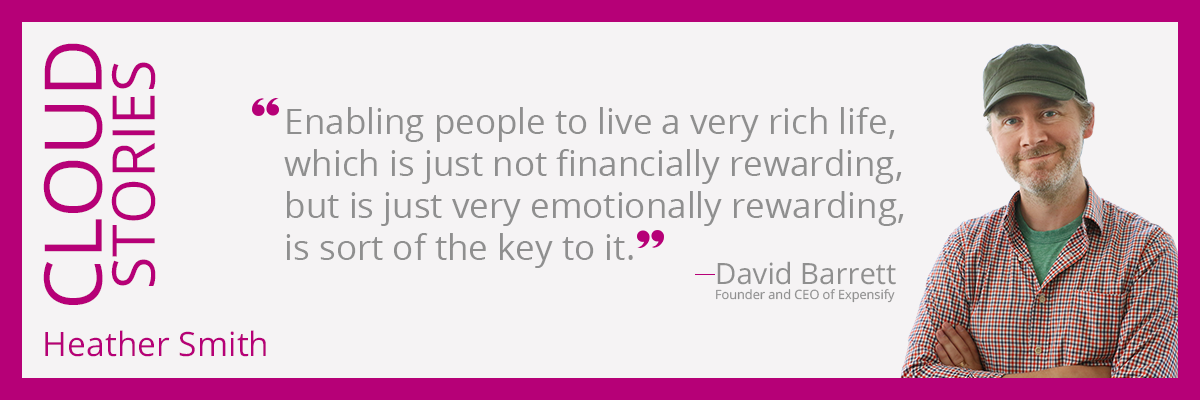
David Barrett: Secondarily, it just has to be super fun. Because it’s like you don’t have time to not have fun at what you’re doing. Yes, we travel. We also throw big parties. We went to the castle in Portugal. We did all sorts of cool things, just because why not? If you have the capability to do it, why wouldn’t you do that? I think it’s a combination of if you want to find the best people, you need to give them the best possible environment. The nice thing is, when you have the best people, they’re much easier to manage.
David Barrett: I would say … You asked the question how do we manage people, how do you motivate them. To a very large degree, we just don’t. I would say the best manager is someone who is passionate for their own personal ambitions and recognises that what they’re doing at work is the fastest path towards their dreams. Not to say that anyone here is like, “Man, I just really love expense reports. It’s what I’ve always wanted to do,” but everybody basically is like, “What I really want to do is I want to start a business. I want to start a business that is in this particular technology,” or whatever, “so I recognise that what I’m doing here is building up the skills for me to do this other thing later. Or building the resources or whatever it is.” If you can map your long-term goals onto your immediate task, then everything is super exciting, even expense reports.
David Barrett: You’re not doing it for the paycheck. You’re not doing it just to get ahead or whatever that means. You’re doing it because it is the next step on your own personal long-term path. Once someone is on a good path, then you can step back and just let them do that. So long as everyone’s paths are aligned right now … We might not all be going in the same place for the rest of our lives, but we’re all going north right now. Maybe we’ll take different exits on that freeway, but that’s fine because we’re all aligned in the short term.
Heather Smith: Do you think engaging a remote workforce encourages diversity and equality?
David Barrett: Sure. Diversity is a challenging topic. I can’t honestly say that I think we’re doing as well as we should or would like to be. I think that diversity, from the outset, is not about quotas or colours or anything like this. It’s about creating an environment that welcomes a wide variety of viewpoints. Not just welcomes in the sense of you will be tolerated, but actively encourages different viewpoints. I don’t know. It’s interesting. I don’t know that working remote … I wouldn’t say the key to diversity is having a remote workforce.
Heather Smith: No.
David Barrett: But I would say of the many ways to be diverse, one of which is to support people with lifestyles that don’t support working in the office or being in whatever city you are. Because even if you’re in the biggest city in the world, it’s a tiny pinprick of this planet. The idea that you can only work with people within spitting distance of you is kind of a crazy concept. I think that, yes, diversity is tremendously improved by supporting diverse work habits, whether it’s different office environments, different cities, and working remote and so forth, but that’s just a piece of it. I think it’s a much bigger and more complicated puzzle than that.
Heather Smith: Yeah. I’ve worked remotely for a decade now. I like the fact that I’m judged on my output of work, not when I did it or what I was wearing, etc. In the last week, I actually had to contact two people and tell them I was a woman, because clearly from their communications they didn’t even realise, even with my name, that I was a woman.
Heather Smith: You mentioned that you encouraged staff to congregate once a month, sorry, for a month every year in a single destination. Previously, you’ve met in Cambodia and Uruguay. What’s your planned destination for 2018?
David Barrett: This year we’re going to Italy. We’ve got three different cities picked out. This year, we’re keeping the details of the itinerary secret. I don’t even know actually where we’re going. I’m just going to show up and figure it out.
Communication tools used to stay connected with Remote staff, hint SLACK is one of them!
Heather Smith: Fantastic. That sounds wonderful. When we’re talking about remote staff, what cloud apps or solutions or tools are you using to stay connected with staff?
David Barrett: There are so many good ones anymore. It’s hard to go wrong. I would say pretty much everything I do is with email, Slack, and Google apps. That’s probably 90% of my world, if not more. I think that Slack is interesting because … Initially, we weren’t on Slack. We were on HipChat, which is totally fine. I think Google just launched and I think Microsoft does one. There’s a million chat tools, and they’re pretty much all fine. I think the nice thing about Slack, however, is that all of the tools allow you to communicate effectively, but Slack has good tools to help you read between the lines. As a business owner, it can actually look ridiculously silly. Like Giphy support. The ability is to do /gif and search something and have some random image come up. Or emoticons or a wide variety of sort of things that are really seen very pointless.
David Barrett: When I step back and consider communication is not just about the facts themselves, but it’s all the nuance surrounding those facts and the emotion and the joy of being together. I think that it’s really the biggest downside of working remote is you lose that opportunity for those micro interactions. They’re very small things that make it fun to be with people. I think that Slack does the best job of any tool I’ve seen in trying to enable for that rich communication and very emotional, human communication. That’s why I think we use Slack. Also, obviously, a lot of video conferencing and all sorts of tools.
Heather Smith: That’s interesting. I use Slack. I just watched a webinar on Slack. It does look like if you don’t know what’s going on, it looks like clutter and noise. Obviously, I like the way you’re referring to it as micro interactions, which is totally what you do miss out on when you are working remotely.
Heather Smith: Another area of Expensify’s business model that is quite unusual, that you’ve kind of written your own playbook on, is radicalising the way you acquire new customers. Rather than promote to the top of the business, you promote to the end user and encourage them to bring it back into their business, almost working as your sales person for you. It’s free for the end user and it saves them time and hassle. This was a brilliant strategy. Did you plan this for day one? Or was it something you observed and have leveraged off?
David Barrett: I would say the best things are never planned. If you can just sit down and plan it, someone would have done it. I would say the two big things that we didn’t really anticipate … One was just because employees hate expense reports so much, but they historically don’t have a lot of power over the selection of what tools they use. Building a product that has an incredibly strong use experience, such that the employees are actually championing internally and actually asking their company to adopt Expensify from the start. I think we see the number one reason that someone will adopt Expensify is not because they spontaneously chose to improve their expense management, but rather it’s because their employees are just furious at what they’re currently using now that they know something like Expensify exists.
David Barrett: I think that by focusing on the end user experience, it created this powerful reason for the company to adopt, when they might not have adopted otherwise. That’s one.
David Barrett: I think the second side is recognising that bookkeepers and accountants are an incredibly influential and powerful group of people that are incredibly trusted by the business owners. If the business owner, I’m starting a café, it’s like I really don’t care what accounting systems I use. I just do not care. I go to my bookkeeper and I say, “Hey, I need to file my taxes and things like this.”
David Barrett: They’re like, “Great, we’re going to set you up with Xero. We’re going to set you up the tools.” Cool. Sounds good. Why would I think about that?
David Barrett: I think we’ve really been working to improve relationships and deepen the relationships with our accounting partners, recognising that they have thousands or millions of clients out there collectively between them that lack good tools and don’t really have the time or inclination to figure them out themselves, but would happily embrace whatever recommendation that their accounting, trusted advisor would give them.
Heather Smith: Yeah, absolutely. Expensify, one of the terms that you use that I’d actually never heard of and I actually thought you’d made up, was pre-accounting. I have gone and searched it, and you didn’t make it up. You are actually ranking highest in SEO for pre-accounting.
Heather Smith: Probably didn’t want it, but there you got it. Can you explain what pre-accounting is, I’m saying pre-accounting, to our audience?
David Barrett: Sure. I would say that everyone knows who accountants are and what accountants do. They do accounting. I would say pre-accounting is the accounting work done by non-accountants. It’s basically the process of employees gathering and normalising and then managers approving information in preparation for the accountant or bookkeeper to take over. I would say the pre-accounting is sort of all of the work that’s no one’s job that everyone has to do. No one got into the job and is like, “My job, I do expense reports.” That’s not true. You’re a sales person. Your job is not to do expense reports. It’s to do everything else. In fact, it’s no one’s job to do pre-accounting, but it’s the sort of thing that has to get done and it sort of just gets shoved in the cracks between everyone else’s roles. Pre-accounting is the stuff that really no one wants to do, but is critically important to get done, such that it enables the bookkeepers and accountants to do their jobs.
Note: Expensify have developed a guide on pre-accounting – click here to access.
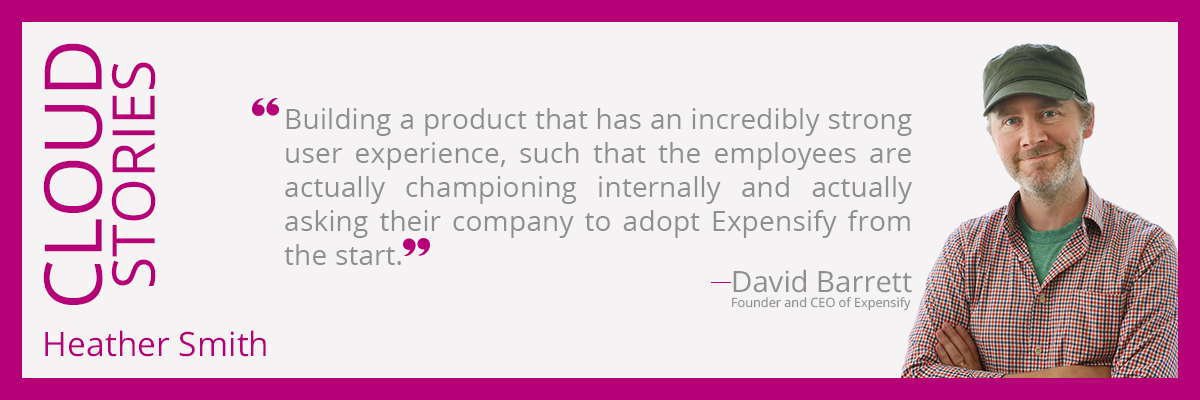
Heather Smith: Yeah, no, that was a really interesting explanation. Sounds like we have a dog shaking in the background then.
David Barrett: That’s right.
Heather Smith: What’s your dog’s name?
David Barrett: Her name is Lemony, and she is a precocious 14 pound beagle.
Heather Smith: Hello, Lemony. That’s very cute. My dog is being very quiet in the background.
Cloud apps, cryptocurrency and one straight answer.
Heather Smith: Do you think all cloud app solutions should adopt abilities to deal with cryptocurrency?
David Barrett: I’ve certainly been involved in the bitcoin community for a while. I remember I actually was interviewed on CNBC debating against Howard Dean against campaign finance contributions in bitcoin. I’ve talked a bunch and bunch on bitcoin. I’m just going to be straight with you, no. I don’t think any of your listeners are really going to use this for anything. I love technology more than the next guy, but at the same point bitcoin is a solution to a problem. Bitcoin is a great solution. If you were in an environment that has a really volatile fiat currency, like Venezuela. There’s a variety around the world where they just doesn’t have a strong financial system. Australia? The United States? It’s like, man, this is not for us. We have a great system. It works fine.
David Barrett: I would say, I think that when first world people look at bitcoin, we primarily look at it as a speculative investment, which is fine. You can think of it like gold. It’s like, yes, I guess gold does have, of course, tangible properties. It’s sparky. You can make chips out of it and things like that. But really most of gold’s value has nothing to do with that. It’s purely just an emotional attachment going back thousands of years. Bitcoin is similar in that sense in that it is something with no intrinsic value, but it has this emotional feel behind it. But it doesn’t have the thousands of years of history. We haven’t really decided is bitcoin worth a ton, $10,000 US, zero? It’s really unclear. I would say that gold and bitcoin are both Ponzi schemes in the sense that their value is entirely based upon whether or not you can get someone to buy it off of you. Gold has shown that Ponzi schemes can last forever. They don’t necessarily collapse, so long as you always have another buyer.
David Barrett: Anyway, I think that bitcoin, honestly, is a thing we love to talk about, but realistically just don’t use. I think that everyone who thinks they’ve made money in bitcoin, they haven’t made anything until they’ve sold.
Heather Smith: I’m very happy with that answer. It means I don’t need to try to figure it all out myself. I’ve been feeling the pressure from people, but I will take your advice there and stay away from it.
David Barrett: This one guy, that’s my advice.
Heather Smith: I know. It’s like, okay, that means another six months of I don’t need to worry about it. What do you look forward to doing most, David?
David Barrett: Man. What do I look forward to doing most? There’s a lot of things. I would say, obviously, there’s the straightforward answers of I have a dog which I like to walk, I have a three year old daughter which is great, my wife and I love to drink wine. I think that the challenge, especially being an entrepreneur, is there is always an infinite number of ways to spend your time, but there’s a very finite amount of time. You’re always going to make more money, but you’re never going to make more time. That’s the thing that has to be prioritised more carefully than everything else. I think that there are always competing goals. You can always spend your time devoted to the business and making something bigger or whatever it is. I think that that tension between the very sort of cerebral thought of how do I dominate the world of expense reporting, versus how do I have a tea party with my daughter, and balancing those two competing interests. Both are amazing. Both are super fun. But they’re just real different.
Talking shiraz with David Barrett – wine aficionado
Heather Smith: Absolutely, absolutely. I understand, and you mentioned it again there, that you’re a wine, I’m not sure if I’m going to say this correctly, aficionado.
David Barrett: I’ll take it, yeah.
Heather Smith: Is there a wine region in Australia you have a fondness for?
David Barrett: Interesting. I think that obviously the Shiraz coming out of Australia is wonderful. I’ve never actually been to Australia. I haven’t gone tasting there, so I don’t know the regions well at all. I love New Zealand wines. I love South African wine. There’s a lot of great wine out there.
Heather Smith: I believe Steph Hinds from Growthwise is coming to your conference soon and she’ll be speaking at it. Christmas last year, I went and visited her. She’s actually on the doorstep of the Hunter Region, which is a very famous wine region. I actually went on a day tour with Alex Falcon Huerta, who is Xero UK’s Most Valuable Player (MVP). I’ll just throw that in. We went on a day tour of the wine region, which was very nice. Alex also wants to send you a message of thank you because you just sent her some swag and some socks. That was my segue to get a thank you from Alex to you.
David Barrett: I’ll always happily trade socks for wine.
Heather Smith: You’ll have to talk to Steph about that. I think you’ll be seeing Steph and Beau soon, so I’ll mention that you like a good Shiraz. You should go and visit them in the Hunter Valley. Maybe we’ll see you in Australia in 2018.
David Barrett: I hope so. We have an office in Melbourne, which we’ve had for, gosh, a couple years now. I honestly just haven’t made it out. Yeah, I think it’s challenging. I was actually talking with someone earlier today, inviting, actually it was a wine event in Aspen. I’m like, “That sounds super fun, but honestly I’m just real busy right now. I want to do less travel and not more.” I think that this has been a busy year. I’m going to Uganda in a couple weeks to go travelling up there. Then we have our Expensacon conference in Bora Bora. Then there’s Italy in the fall. There’s certainly a lot of motion going on here.
Heather Smith: I think the Xero Con is in Brisbane, which is in September time. If you have September free, you can come out for that. It’s very family friendly. Brisbane is three hours north of Melbourne by plane. The weather is beautiful. It’s a beautiful, beautiful place.
Future plans for Expensify: We know we’re going to be here forever, so we’re making the investments in the product that’s going to last forever.
Heather Smith: What does the future hold for Expensify?
David Barrett: So much, but fundamentally I would say it’s all based around more of the same in the sense that … Expensify has more customers than our next four competitors combined. We’re a very widely used product, but at the same time, most of the world still doesn’t use us. We’ve got a lot of work to do. I think expense management is interesting in that it is one of the few truly universal applications, in that everyone who spends money has this problem. Every single business at the very least, because every business has expenses. You might not have revenue, but you certainly have expenses. As a result, every single business is a potential customer because we support everything from an individual sole proprietor up to a Fortune 500 company. We support companies of pretty much all size in every language and every currency and things like this. We also have just millions of individual users who use Expensify just for their own personal reasons. Whether to track the budget of some sort of renovation project or to track receipts for charitable deductions or a huge range of different sort of use cases.
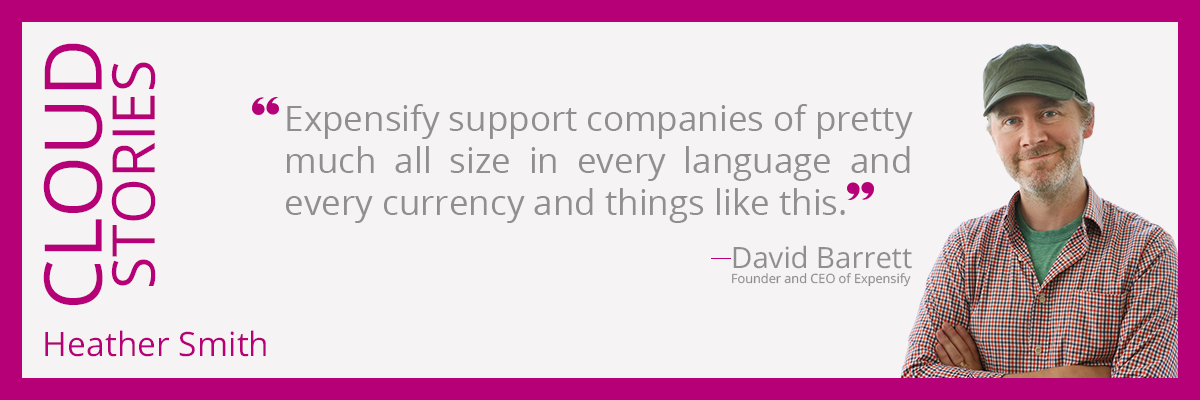
David Barrett: I think that Expensify has … Certainly, I feel like we’ve made a lot of progress, but it’s just scratching the surface of what we hope to do over time and build a business that’s going to be here a long time. Unlike most technology companies, Expensify is totally profitable. As a result, just make money. Yes, we do all this crazy stuff, but we do it basically paying for it out of our own pockets. We work hard to basically build a business.
David Barrett: I think that one might think Expensify’s profit doesn’t really affect the customers. I actually would say quite the opposite. The reason that Expensify can take such a patient approach towards building our product is because we’re not in a hurry. We know we’re going to be here forever, so we’re making the investments in the product that’s going to last forever, as opposed to just trying to quickly pump and dump something to some other acquirer.
Heather Smith: You recently celebrated an amazing milestone of reaching Expensify’s tenth birthday. You definitely have achieved so much in that ten years. You might have heard yesterday that Rod Drury, who founded Xero …
David Barrett: That’s right.
Heather Smith: … over 11 years ago, has just stepped aside, not down, aside as CEO. Did you hear that?
David Barrett: Yeah, yeah. I saw the news. I haven’t talked to Rod about it yet, but I’ll have to give him my congratulations.
Heather Smith: Yes, yes. Steven Vamos is excellent, so that should be an interesting new freshness in the Xero community.
Heather Smith: My final question from the community, from the cloud community for you, is from Biztech blogger and general manager of Govern Right, Matt Paff. His cheeky question for you is, “David, any spare tickets to Bora Bora? My full name is Matthew Path. My passport number is …”
David Barrett: The Bora Bora tickets unfortunately are all spoken for. If there is anyone who has to do a late cancellation, we can maybe always keep that in mind.
Heather Smith: Excellent, excellent. Always need a cheeky question from Matt Paff and the end. Thank you so much, David, for taking the time to speak with me. I really appreciate it. I’m sure our audience will gain a lot from listening to you. How can they get in contact with you if they’re interested in speaking with you further?
David Barrett: Sure-
Heather Smith: Or finding out about your solution, Expensify?
David Barrett: Yes, of course. I would say Expensify is easy to find. It’s spelled Expensify. You can go to expensify.com. You can install Expensify of the iOS or Android app stores or you could just email me, david at expensify dot com (avoiding the bots!). I’m super easy to find.
Heather Smith: Thank you so much.
David Barrett: Hey, it’s been a real pleasure. Thank you.
Thank-you for listening, I hope you enjoyed the show.
